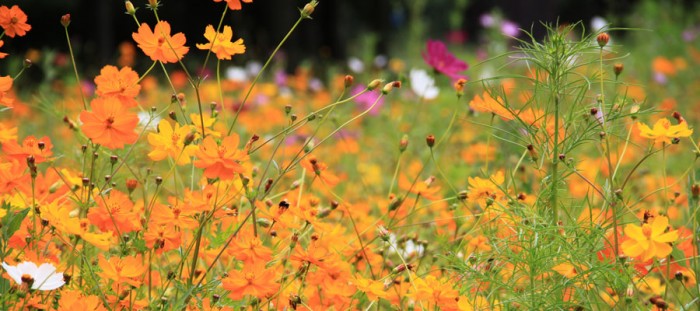We recently came across this article in Plateau Land & Wildlife’s most recent newsletter, “Seasons.” Written by Shane Kiefer, Plateau’s Senior Wildlife Biologist, it lays out the case for redefining the “perfect lawn” as something other than the manicured, monoculture turf expanse so popular today. We would love to hear what you think of when you imagine the perfect lawn.
From Shane:
Last year I wrote about the silver lining of natural disturbances with a focus on the wildfires that were so prevalent at the time. Natural disturbances are an important part of the natural world. They remind us that nature never stands still.
In particular, I mentioned the positive side effects of drought that appear when favorable conditions return, and the recent winter rains are giving us a good demonstration of those beneficial outcomes. The drought set the stage for those fires, which are a natural part of most ecosystems in Texas, but drought also reduces decadent plant growth, even without fire. That built up plant material dries up and breaks down (and blows away) or is consumed by foraging animals as a consequence of not having any fresh growth on which to feed.
By opening up bare ground, this encourages a flush of annual forbs and other weedy species when the rains return (which they have for now) that doves, deer, quail, Wild Turkeys, seed-eating songbirds, butterflies, bees, and many other species rely upon. Look at how many spring weeds you have in your yard right now after last year’s watering restrictions. While my neighbors may not appreciate it, my yard is an excellent demonstration of an early successional plant community that many types of wildlife relish.
This explosion of new growth also results in a boom in insects and arthropods that are essential to nesting birds, reptiles, amphibians, etc. The plants are the core of the food web and insects are an important part of its structural integrity.
The lesson here is that the flora and fauna, and ecosystems that they comprise in Texas are built to withstand drought and other disturbances. The healthier and better managed your land is, the better equipped they are to do just that. So this spring, tell your neighbors that your yard is an experiment in ecological succession for the benefit of wildlife, and take delight in the weeds, forbs, wildflowers, or whatever you prefer to call them. The wildlife certainly will. And if you feel like learning more about the names of all those weeds on your property, call Plateau- we will be happy to take you on a walk.

